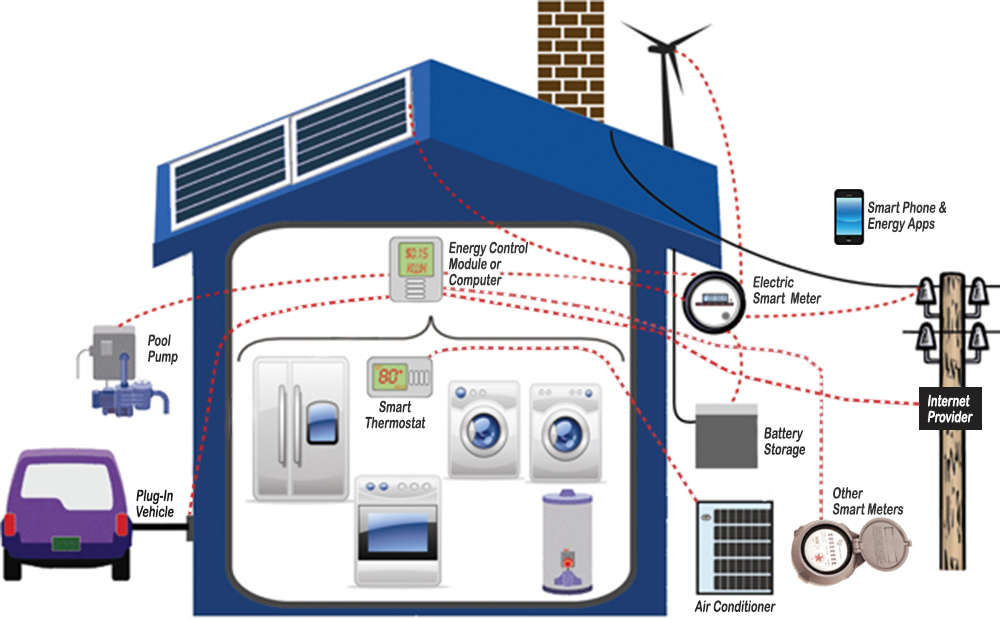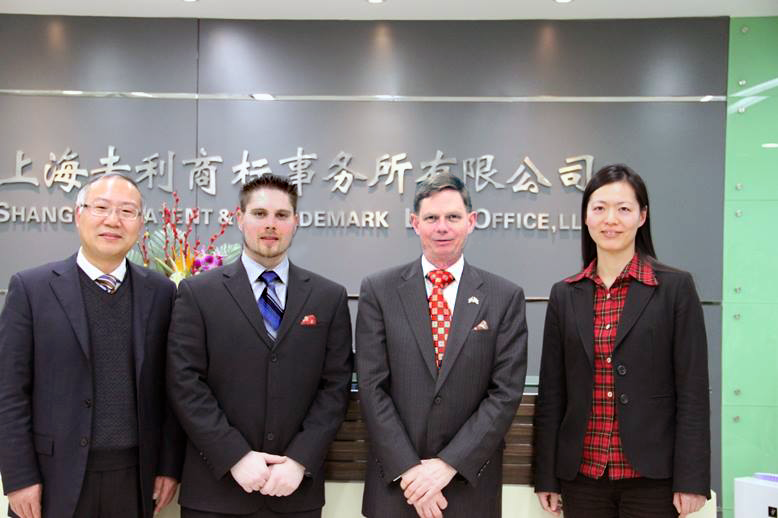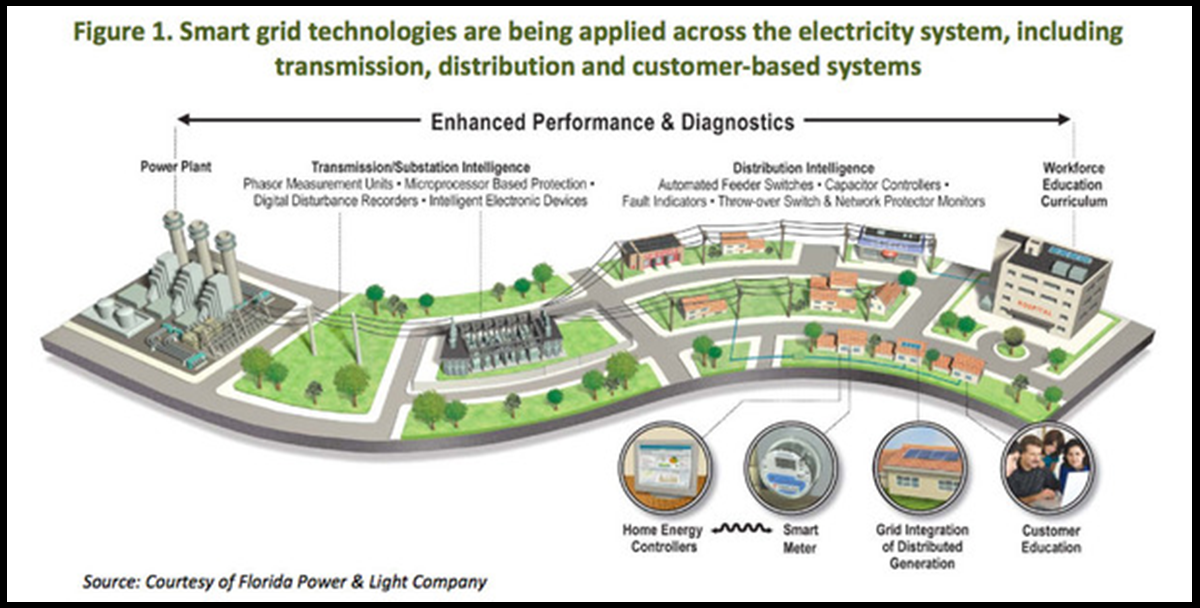Our patents cover the Internet of Things (IoT) driven by utility Smart Meters, the utility billing and Smart Grid control systems, coupled with mobile smart phones.
United States and foreign patents Tamarkin, et al
Our patents cover the new smart meters which send and receive data to and from a utility company and devices in the home or office. The first 2 granted US, Chinese, EU, and Israeli patents cover the distributed network system. The January 2014 US patent includes specific claims covering the use of the following with smart meter or internet connections with a utility.
Use of internet based utility websites to provide customers with a record of utility commodity (electricity, gas, water, and the like) on a daily basis in combination with new electric smart meters which contain internal service turn on-turn off switches for remote control. Virtually all new smart meter deployments by utilities offer this customer service as described by the Pacific Gas & Electric company, and the Sacramento Municipal Utility District.
Pacific Gas & Electric (PG&E,) based in San Francisco, CA sent a brochure to over 3.5 million electrical residential customers describing the new smart meters and the dual wireless radios inside along with plans to allow customers to use the Home Area Network radio in the “future.”
- In-home display of utility rates, consumption and cost; regardless of display device; PC, tablets, PDAs, smart phones and the like.
- Use of smart phones for display & control of utility commodities (electricity, gas, water)
- Real time billing and direct payment for services via the system
- In-home connections with “smart appliances”
- Integration with “smart thermostats” for heating and air-conditioning.
- Nest smart thermostat example with ZigBee smart meter compliant commutations
Smart thermostat market buzzes with buy outs and ‘proof’ they work - Nest Touts Three Studies Claiming Its Thermostat Pays For Itself In Two Years
- Schneider Electric Unveils Wiser Air; Makes Move into Thinking Thermostat Market
- Transform Every Customer into a Demand Response Resource
- SDG&E loans in-home display units to smart meter customers
- Nest smart thermostat example with ZigBee smart meter compliant commutations
- Integration with “smart” electric vehicle charging stations including DR capability
- Automatic meter reading of meter data by utility to produce customer bill. See off site example to show commercial activity
- Remote service turn on and turn off to support move ins and move outs at a utility service drop point and facilities collections from chronically late bill payers. See off site example to show service disconnect/connect commercial activity
- Subscriber side billing and prepayment including electronic funds transfer from display and mobile devices. See off site example of prepaid and subscriber side billing activity & trends
- Internal smart meter control and communications module to facilitate wide area communications to and from the utility and the meter and to facilitate data communications to and from the local subscriber’s or home area network and the meter. See off site example showing commercial activity
Who owns the data inside the utility meter at the customer’s location? Dian Grueneich, former Commissioner California Public Utility Commission, states that the customer owns the meter data and therefore is entitled to direct access.

To avoid infringement, a chain of system component manufactures and the utility company deploying a smart meter containing the data communication capability must be licensed by us to “practice the IP.”
As an example of such a system covered by our patents consisting of smart meters, smart appliances, remote data communications to utilities and to customers over smart phones and PCs please see this news article.
Our specific business strategy to license the end users and contributory potential infringers is confidential and proprietary to EnergyCite® and will only be shared under terms of non-disclosure with a NDA.
Follow this link to a video library of our history and our technology demonstrations.
Provisional Patent Application, August 2004
Patent 7,379,791 granted in US, China, EU, and Israel based on Publication No. US 2009/01-9056 A1
USPTO patent 7,379,791 granted May 27, 2008. Assigned to EnergyCite, Inc.
USPTO patent 8,306,668 granted November 6, 2012. Assigned to EnergyCite, Inc.
USPTO patent 8,639,390 granted January 28, 2014. Assigned to EnergyCite, Inc.
China patent number 0033605 Issued September 9, 2011
EU Patent No. 1815213 granted November 4, 2012
First Israel patent granted January 12, 2012
Second Israel patent granted April 1, 2016

A discussion about the Tamarkin, et al patents on the smart meter and in-home network technology by Robert S. Block
EnergyCite in Jerusalem, Israel patent attorney explains EnergyCite’s patents.
Integrated Metrology systems and information and control apparatus for interaction with integrated metrology systems
Abstract
A system is disposed at a location of a utility commodity subscriber for informing the subscriber of and controlling utility commodity usage. The system includes utility meters, an information and control apparatus, and a first and second data communication link. The meters measure usage and generate usage signals. The information and control apparatus includes a microprocessor, a memory, a clock, and a user interface. The first data communication link is between the utility meters and the information and control apparatus, and the second data communication link is between the information and control apparatus and one or more central locations. The second communication link also provides rate information to the information and control apparatus and utility commodity usage data to the one or more central locations. The microprocessor computes an accumulated cost of utility commodity for a predetermined period of time. Information related to the accumulated cost is output to the subscriber.

